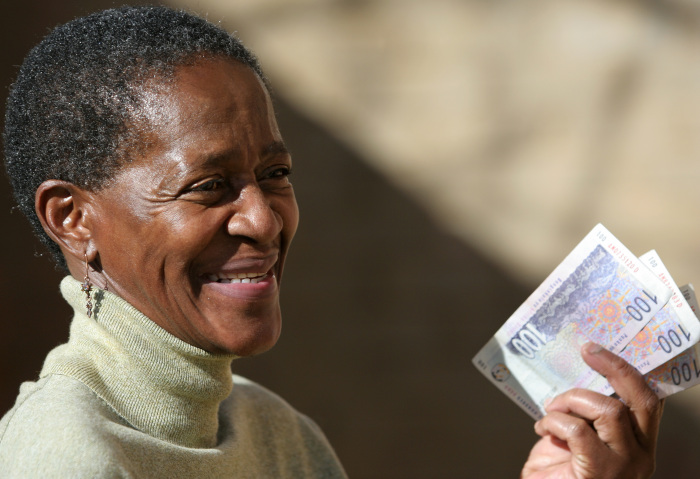
“We know based on evidence that gender equality is not only a condition for social justice but a powerful driver of the economic growth that can help deliver it— the inclusive growth that benefits all.”
World Bank Group President Jim Yong Kim, 2015
According to the IMF (2018) women’s economic empowerment enhances productivity, economic diversification and income equality.¹ Nevertheless, in developing countries, women are still 13 percent less likely than men to own a bank account.²
What challenges are women confronted with when accessing finance?
Women face several constraints when it comes to making financial decisions, especially in traditional settings. In Northern Nigeria and India for example, it is frowned upon when women transact with men who are not their relatives. Moreover, women usually have less collateral to offer when applying for credit. Financial institutions (FIs)— or even laws— sometimes require the husband to be a guarantor who consequently might demand a share of the loan but does not participate in repaying, neither principal nor interest. Regularly, community leaders are asked by financial institutions to give a recommendation letter, however those are mostly men. When group loans target women exclusively, men sometimes front them to take out the loan, but monopolise its use. Furthermore, women would need saving accounts at extra-low or zero operational costs that come at their discretion, to protect their agency.
Why and how to mainstream gender finance into financial sector development projects?
Women have high commercial potential as they have less access to financial and insurance products than men but control more than 70 percent of consumer expenditures. Their need for financial products and capacity building is different, as the fields of activity of women led businesses are often different from men’s.
The three existing main strategies to reduce gender inequalities in the access to financial products for women led businesses are i) specific credit lines for women-led businesses; ii) a diversified workforce at financial institutions, including female loan officers; and iii) tailored programs for women entrepreneurs which include training and specific financial products.
Financial institutions can either improve female entrepreneurs’ access to their existing financial products and services or create other services (e.g. blend of microfinance and formal credit) and that way expand their customer base. For that purpose, they should be monitoring the performance of the different products and services disaggregated by sex and revise the application procedure to ensure that women-led businesses are not disadvantaged. Since women are often not meeting the guarantee requirements, alternative collateral should be considered, like equipment and movable assets, or collective and third party guarantees. FIs should also develop an internal gender strategy and train their employees on gender awareness, especially the account managers. On the other hand, when offering financial inclusion training to MSMEs, a gender perspective should be included. Successful women customers can be advertised and offer peer support and mentoring.
How does AFC’s Financial Sector Development team promote gender finance?
AFC’s specialised FSD team has been successfully training bank staff in integrating a gender perspective and analysed barriers for women-led businesses to access financial products and services.
In Nigeria for example, our team of experts advises the Central Bank on women’s financial inclusion and recently presented a draft strategy to expand delivery channels to service female clients closer to home, proposing to encourage gender balance in agent networks (read more about the project here).
We also supported the Central Bank of Egypt in evidence-based policy making for greater financial inclusion of individuals and MSMEs, where special focus was put on the prevailing gender disparities (read more about the project here).
In our Financial Sector Programme in East and Central Africa almost half of the over 25,000 MSMEs trained by us were female. We further provided capacity building support to partner financial institutions in gender finance, including the assessment of the gender policy and development of a dedicated gender strategy. Moreover, we organised gender focused training workshops on how to promote women within the banks, women’s leadership and women in business (learn more about the project here).
In addition, we ensure to mainstream the topic into general project implementation, including gender sensitive monitoring and reporting. We have inhouse experts for the topic of gender and finance in the Financial Sector Development team, analyse the gender ratio among our teams of experts and raise staff’s awareness, sensitivity and knowledge about the topic.
For further information please contact oliver.schmidt [at] afci.de or cecile.poitevin [at] afci.de.
————————————————————————————————————————————————————————————————
¹ International Monetary Fund. 2018. “Pursuing Women's Economic Empowerment.” https://www.imf.org/en/Publications/Policy-Papers/Issues/2018/05/31/pp05...
² Kabir and Klugman. 2019. “Women’s Financial Inclusion in a Digital World. How mobile phones can reduce gender gaps.” Georgetown Institute for Women, Peace and Security.
